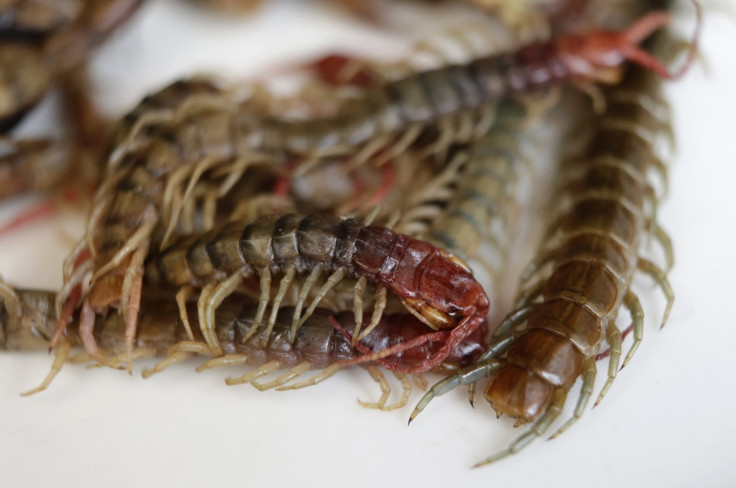Centipede Genome Sequencing Reveals Animal Has 7K Fewer Genes Than Humans

A team of scientists has sequenced the genome of the centipede for the first time and found that it has around 15,000 genes -- about 7,000 fewer than humans do.
Arthropods -- the most species-rich group of animals on Earth -- are divided into four classes, including insects, crustaceans, chelicerates and myriapods. The latter group, which includes centipedes, is the only class for which no genome had yet been sequenced, scientists said in a study, published in the journal PLOS Biology.
“With genomes in hand from each of the four classes of living arthropod, we can now begin to build a picture of the genetic make-up of their common ancestor,” Frank Jiggins, of the University of Cambridge's genetics department, and one of the researchers involved in the study, said in a statement. “For example, by comparing flies and mosquitoes with centipedes, we have shown that the innate immune systems of insects are much older than previously appreciated.”
As part of the study, the scientists sequenced the genome of “Strigamia maritima,” a northern European centipede. They found that its genome is more conserved than that of many other arthropods, such as the fruit fly, suggesting that the centipede has evolved more slowly from their common ancestor. Despite their name, centipedes do not have hundred legs. Strigamia maritima, which lives in coastal habitats, can have between 45 and 51 pairs of legs, but the number of pairs is always odd.
The researchers also discovered that the centipedes have lost the genes encoding all of the known light receptors used by animals, as well as the genes controlling the circadian rhythm, or the body clock.
“Strigamia live underground and have no eyes, so it is not surprising that many of the genes for light receptors are missing, but they behave as if they are hiding from the light. They must have some alternative way of detecting when they are exposed,” Michael Akam of the University of Cambridge and one of the lead researchers of the study, said in the statement.
© Copyright IBTimes 2024. All rights reserved.






















